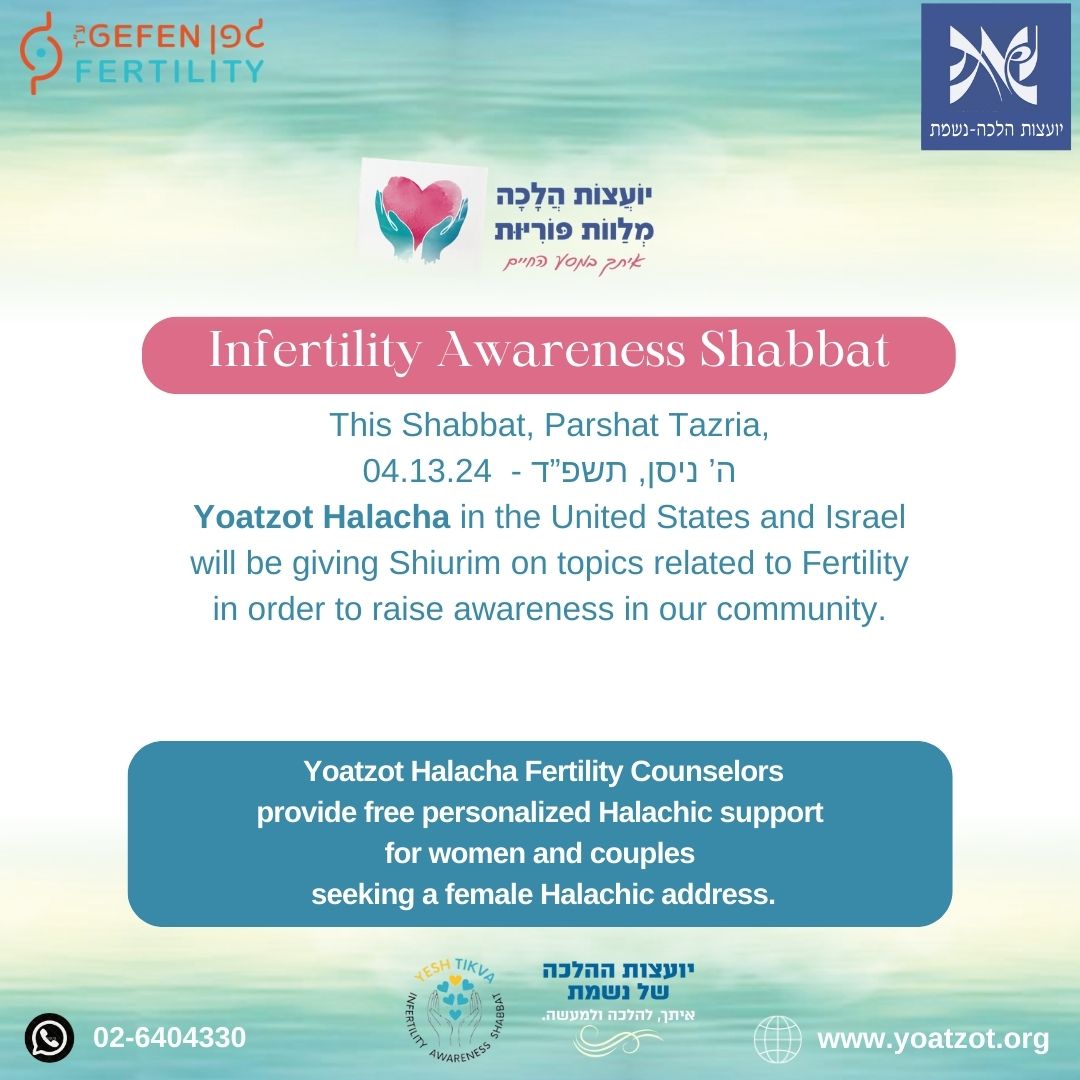Married four years, still dreading niddah
7 May, 2007
 Question:
Question:We have b"h been married for 4 years now, we b"h have children. They say that over time you get used to certain things and they get easier. However, I still find that I still dread being in niddah now, just as much as when we were first married. It's just so difficult for me when I can't have my husband's physical touch. When I speak to most of my married friends they tell me, it was hard being in niddah when they were first married, but a few years and kids down the line, they look forward to being in niddah and enjoy their "time alone" and "space". I don't . Is there something wrong with me or my marriage? Is this normal?
Answer:We are sorry to hear that niddah remains such a challenge for you.
We do not know enough about you or your marriage to make an assessment (nor is that our place). However, based on our anecdotal experience, there are some women (and men) for whom observance of these laws is more difficult than for others. Different people have different ways of expressing intimacy. Some feel a stronger need for togetherness than others. Within this group, some best fill their needs through constant physical expressions of intimacy, which could make the experience of niddah more difficult. This sounds like it may be your situation.
We suggest that you not compare yourself to others or criticize yourself. Rather, explore your feelings more deeply, with a view toward using your self-understanding to develop constructive ways of handling these halachot – ways specific to you and your needs.
Here are some questions you might ask yourself: Why is physical touch so important to you? Why is its intermittent absence difficult for you? Have there been other contexts in which touch was not available when you wanted it? What was your experience of them? Have there been times when you needed more touch? Less touch? Why? What has helped you in the past when you needed touch and did not get it? What are the actions besides touch that make you feel loved and connected to your husband? When has keeping niddah been most difficult? Most easy? Why? Are there specific actions that you or your husband might take that could make keeping niddah a better experience for you?
We hope this helps and commend you for asking this question. Please don't hesitate to be in further contact with us.
This internet service does not preclude, override or replace the psak of any rabbinical authority. It is the responsibility of the questioner to inform us of any previous consultation or ruling. As even slight variation in circumstances may have Halachic consequences, views expressed concerning one case may not be applied to other, seemingly similar cases. All health and health-related information contained within Nishmat's Women's Health & Halacha Web site is intended to be general in nature and should not be used as a substitute for consulting with your health care professional. The advice is intended to offer a basis for individuals to discuss their medical condition with their health care provider but not individual advice. Although every effort is made to ensure that the material within Nishmat's Women's Health & Halacha Web site is accurate and timely, it is provided for the convenience of the Web site user but should not be considered official. Advice for actual medical practice should be obtained from a licensed health care professional.
For further questions or comments: 
The Nishmat Women's Health and Halacha Site is a public service of Nishmat, The Jeanie Schottenstein Center for Advanced Torah Study for Women. This project and others like it are made possible by contributions from people like you. If you have benefited from the service, and wish to enable us to help others, click here to donate.
Users of Internet filtering services: This site discusses sensitive subjects that some services filter without visual indication. A page that appears 100% complete might actually be missing critical Jewish-law or medical information. To ensure that you view the pages accurately, ask the filtering service to whitelist all pages under yoatzot.org.






 Question:
Question:







